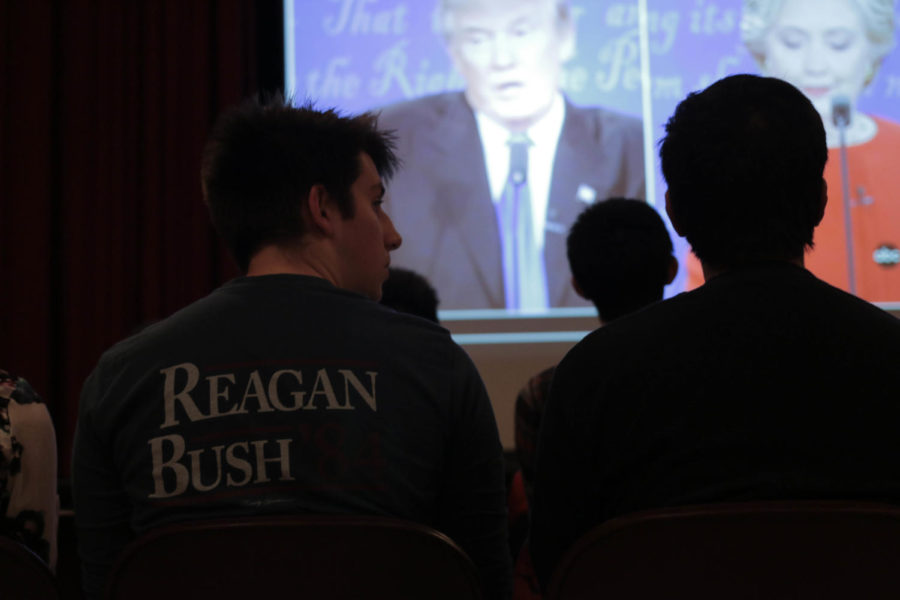AP Gov: Iowa State students share their opinion on presidential debates
September 27, 2020
The presidential debates play a significant role in elections: it allows voters to see firsthand how candidates respond to questions and to see both sides of the candidates.
Many voters use the debates to formulate their opinion on each candidate. With the first presidential debate between Democratic nominee Joe Biden and Republican nominee President Donald Trump on Tuesday, Iowa State students responded to their opinion of the debates and how social media has changed the debates.
“The purpose of the debate is to allow voters to decide who they prefer,” said Mack Shelley, professor and chair of the political science department.
The first general presidential debate was not until 1960 between John F. Kennedy and Richard Nixon. There were nonmoderated debates before 1960; the most widely known debates were between Abraham Lincoln and Stephen Douglas.
In 1960, the first televised debate was between Kennedy and Nixon. It is said that the debate led to Nixon’s defeat due to his unfamiliarity with television and Kennedy’s calm demeanor during the debate.
“[Nixon] had a sweaty brow and a five-o’clock shadow, and Kennedy looked calm and cool,” Shelley said.
Television debates allow for voters to see candidates’ reactions to questions and answers from the opposing side.
“Now watching the debates, you’re looking for different things … who seems sincere, who seems honest,” Shelley said.
During each debate, candidates are asked a series of questions from moderators. This year, Twitter will be giving debate moderator Lester Holt live tweets and questions during the debate.
“I think using Twitter to ask questions is going to be a good way of younger voters to ask the questions they care about,” said Nathan Lewis, a sophomore in biological systems engineering.
Social media has changed the way debates impact voters opinions. Debates are now readily available on television or livestreamed on Twitter.
“With new technology, most people can watch the debates on their laptops or smartphones,” Shelley said.
Social media can also be the downfall of candidates during debates.
“One bad verbal slip can really hurt a candidate, and that gets magnified by social media,” Shelley said. “A five-second video of one candidate saying something stupid and it will be on a hundred million smartphones within minutes.”
In today’s society, not all Americans have time to sit and watch a two-hour-long presidential debate, so they rely on social media showing and talking about the main events from the debate.
“I do not have time to watch the debates, so I look at Twitter and news sources to get a recap of what happened during the debate,” Lewis said.
Many viewers still watch the debate to gain knowledge about the candidates and form their own opinions.
Dominiqua Watts, sophomore in elementary education, said she enjoys watching the debates and has gotten more into watching them as she’s gotten older.
“I shape my opinion on debates,” Watts said. “Debates change a voter’s mind.”
Watts said her only dislike for the debates is when candidates do not answer the questions directly.
“Candidates do the best they can to avoid answering questions directly,” Shelley said. “Candidates say more or less the same thing about 20 different times during any debate. They are programmed to convey certain messages.”
Lewis said the main reason he dislikes the debates is because they are too long and filled with candidates talking over each other.
“Most of the things candidates say during the debates are false promises and rehearsed campaign speeches,” Lewis said.
Despite some viewers wishing for changes to be made during the debates, many viewers still believe debates are useful for voters.
“It’s important to have debates and allow the voters to form their own opinions and see what is going on,” Watts said.

















